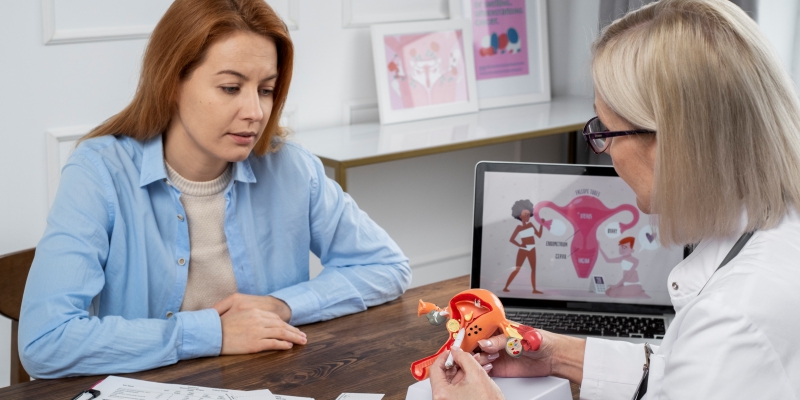
What is Urinary incontinence Dr. Rubina Shanawaz

Do you involuntarily leek urine when you laugh hard or sneeze? To find a solution to this embarrassing situation, read on
 This can be a result of:
This can be a result of:
- Isn't involuntary leakage of urine a part of having children & growing older??
- What is the medical term for this condition?
- How common is Urinary incontinence?
- What causes such involuntary leakage?
 This can be a result of:
This can be a result of:
- Pregnancy & vaginal birth(as the same group of muscles support the uterus)
- Obesity, Long standing cough/ Constipation
- Lifting heavy weights over a long period of time
- Genetically Inherited factors:
- Women with stress incontinence may also have problems with urinary Urge Incontinence (not able to control urine till reaching the restroom) or incontinence of feces/gas or prolapse (descent of uterus, felt as lump outside vagina). Do not feel embarrassed to mention these problems to your doctor. Pelvic floor problems are more common than depression(1 in 20 women) or hypertension (1 in 3 women)
- Aim to drink 1.5 to 2 liters of water per day to pass urine 4 to 6 times/day
- Maintaining a healthy lifestyle
- High fiber diet to avoid constipation
- Cutting out smoking
Related Blogs

Body Positivity Tips Post C Section (Cesarean Delivery)
Read More
Vaginoplasty: Procedure, Cost, Risks & Benefits, Recovery
Read More
The Digital Dilemma: Exploring the Medical Implications of Technology on Child Development
Read More
How To Relieve Menstrual Cramps? - 8 Simple Tips
Read More
Benefits of Consuming Folic Acid Tablets For Pregnancy/During Pregnancy
Read More
Navigating Radiology: Ensuring Safe Imaging During Pregnancy
Read More
Navigating Radiological Tests During Pregnancy: Ensuring Safety for Mother and Child
Read More
Decoding the Wonders of Pregnancy: When and Why Ultrasound Scans Take Center Stage
Read More
Decoding the Wonders of Doppler Ultrasound in Pregnancy: A Radiologist's Perspective
Read More
Understanding Cervical Cancer: The Crucial Role of Early Preventive Health Checks
Read MoreRequest A Call Back
Leave a Comment:
View Comments
Previous
Next
HELLO,
Stay update don our latest packages, offer, news, new launches, and more. Enter your email to subscribe to our news letter


 Toll Free Number
Toll Free Number








No comment yet, add your voice below!